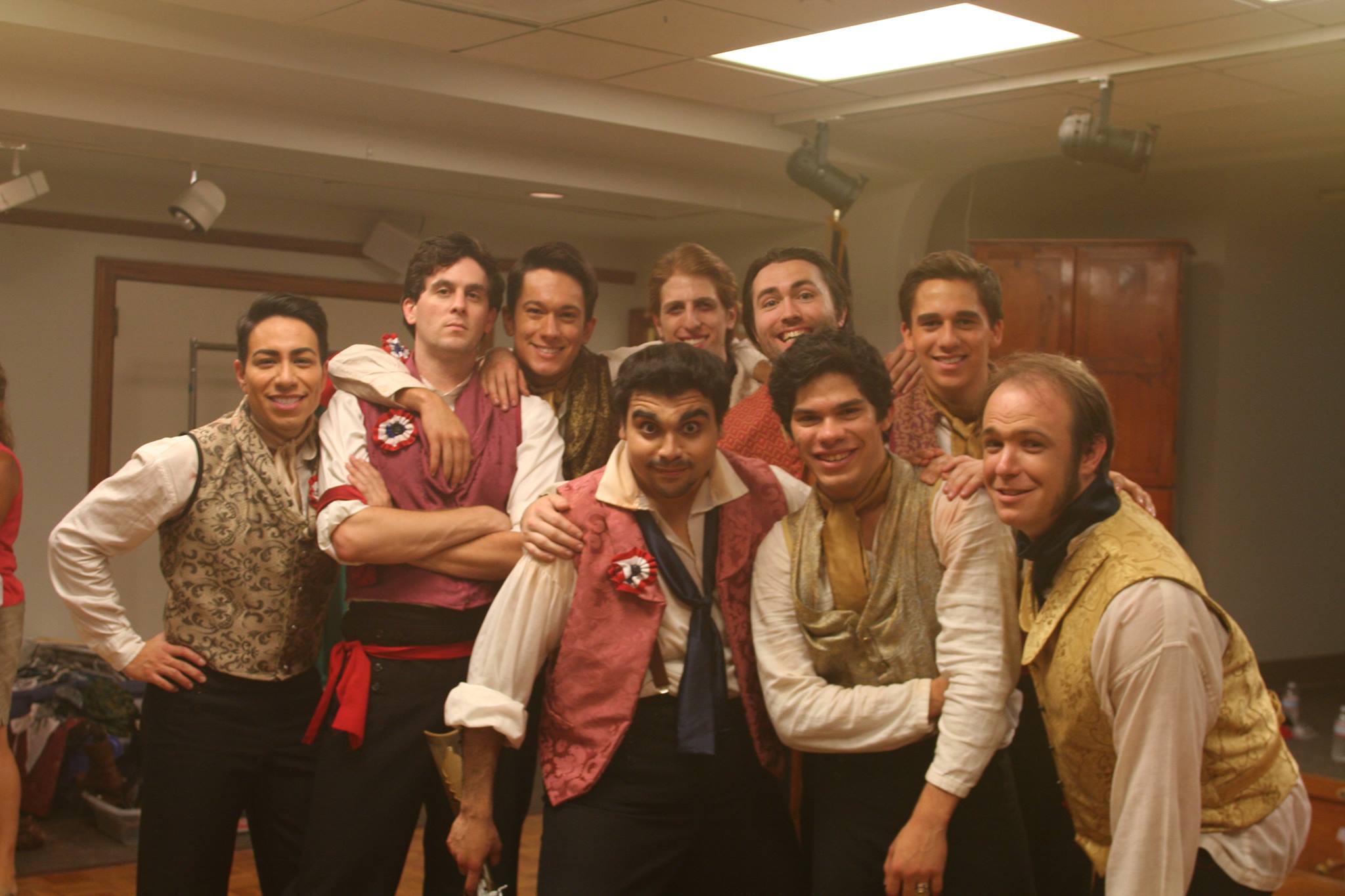BY CARY GINELL
They arrived at the theater for their first rehearsal in early summer. By the end of August, they were a family. What is this odd dynamic that makes up a musical theater company? The ARTS production of “Les Miserables” staged its last performance Sunday afternoon and at the cast party after the show, there were tears, hugs, and promises to get back together again. I’ve seen this happen time and time again with other casts for similar shows. Although some cast members knew each other before rehearsals started, many did not. The performers came from all over the Los Angeles area; some, like Mazie Wilson, driving in from Orange County to play Eponine for three shows every weekend. During the course of the six-week run, friendships were established, bonds formed, and pledges to stay in touch were made, but although some ties remain strong, the dynamic is never the same as when the show was running, especially since the cast comes from far-flung parts of the Southland.
“Les Miserables,” however, may have been just a little different than other shows. One of the reasons is because of the magnitude of the show and the excellence of the production. “Les Miserables” is quickly becoming one of the best-loved shows of the 20th century. The beautiful melodies, heart-wrenching story, adapted from Victor Hugo’s novel, and grand themes make it a show that is every actor’s dream to perform in. Although it made its Broadway debut in 1985, it wasn’t made available to community theaters until this year. But in addition to its lofty status, “Les Miserables” is also a physically draining musical. With almost non-stop singing and a three-hour-plus running time, it takes an inordinate amount of concentration by the actors, crew, and musicians, to stay focused. In the case of Geoffrey Going, the sole Actors Equity member of the cast, his role of Jean Valjean is especially exhausting. During the course of the show, Going battles Inspector Javert, has to rescue a man from being crushed under a heavy cart, and hauls Rehyan Rivera, who portrayed Marius, across the stage, slung over his shoulder like a sack of potatoes while singing his part and fighting off Javert at the same time. Going goes through an ordeal almost as rigorous as what the fictional Valjean went through. He stays fit through regular visits to his local gym, but had to go through it all over again at each performance, even applying his own make-up to age himself by 30 years.
The camaraderie among the performers and the crew was palpable; moreso with this show than most others I have seen. The temporary family that is a theater production is not unlike a team of athletes. Although they are individual performers, musical theater is a team sport, with each member rooting for and supporting one another. When ensemble member Jodie Morse became ill before the last weekend, Alexandra Vann, who already had her hands full playing the key role of Cosette, volunteered to fill Jodie’s part in the ensemble. After performances, the cast, exhausted, but not wanting to leave their comrades, somehow found the energy to head out for a late-night dinner, movie, or other activity before going home and collapsing in their beds.
After a few weeks, the “Les Mis” gang started having themed green room events, such as the day where everyone – men and women, boys and girls alike, wore sun dresses to the theater. One weekday evening, cast members cavorted at Universal City Walk for an evening of frivolity and pasta at Buca di Beppo. On “Fantine Funeral Day,” everyone wore black. “Les Mis” was like a working summer camp, an exhilarating experience none of them will ever forget. At the potluck cast party, they were autographing show programs for one another; Ben Deschaine, who portrayed Javert and is handy with tools and woodworking, crafted a faux French Revolutionary rifle for a souvenir from wood and assorted spare parts. Of course, everyone wanted to sign that, too. “Can’t we do this just one more weekend?” someone cried. “Yeah, let’s take the show on the road. We can do this forever!”
But, like all Broadway shows, the final curtain must come down, and tears were shed on stage as the last standing ovation washed over the cast. Even the smallest members of the troupe – little Stanley Miller, who played Gavroche, and Natalie Esposito, as young Eponine, were overcome by emotion as the audience cheered. They’ll all perform again – some of them together, but this particular cast will not perform together as a unit again, a tragedy almost as sad as the fate of the fictional characters in the show. This extraordinary, but temporary team is, regrettably, gone forever. From a member of the orchestra pit, I just wanted to say that it was a privilege helping provide the musical background for the show and wish everyone “bonne chance” and advise everyone not to say “au revoir,” but “á bientôt.”






David Daniels
•11 years ago
Very nice article Cary. One of the greatest things about doing a show is the people you get to work with and friendships you build.